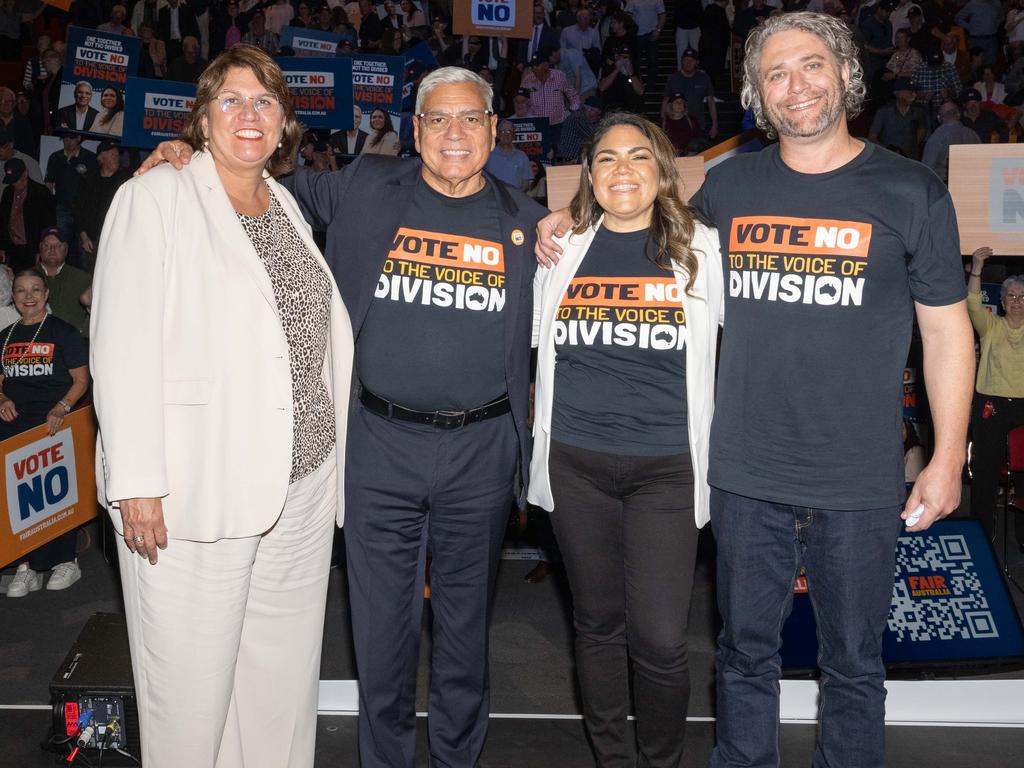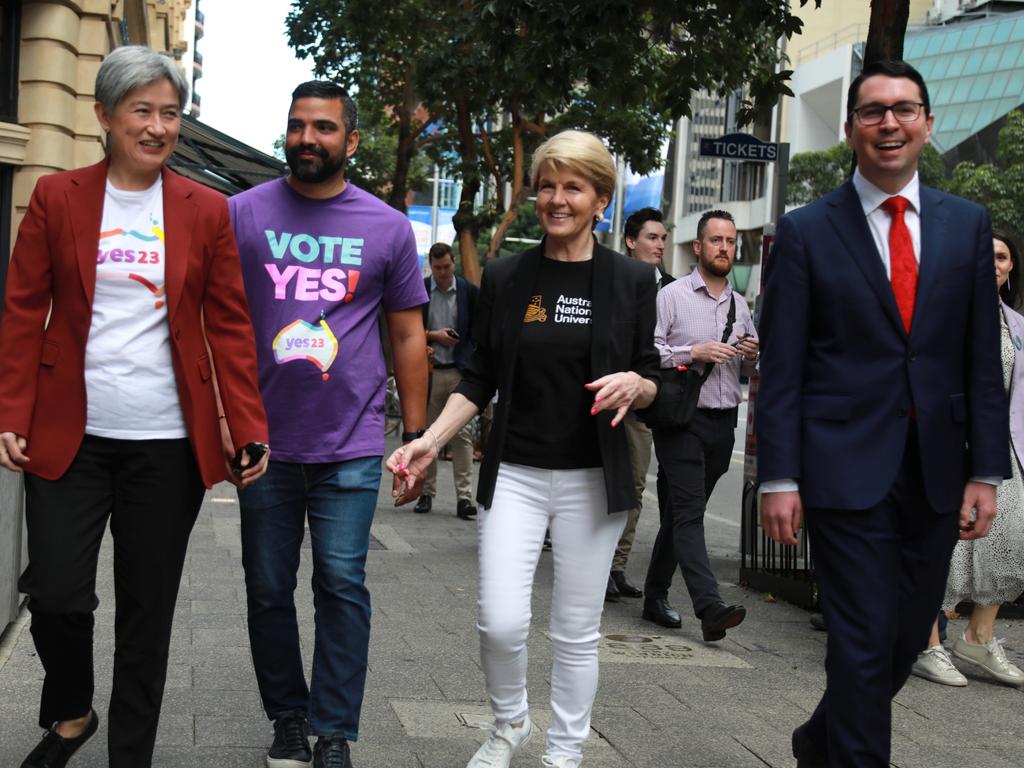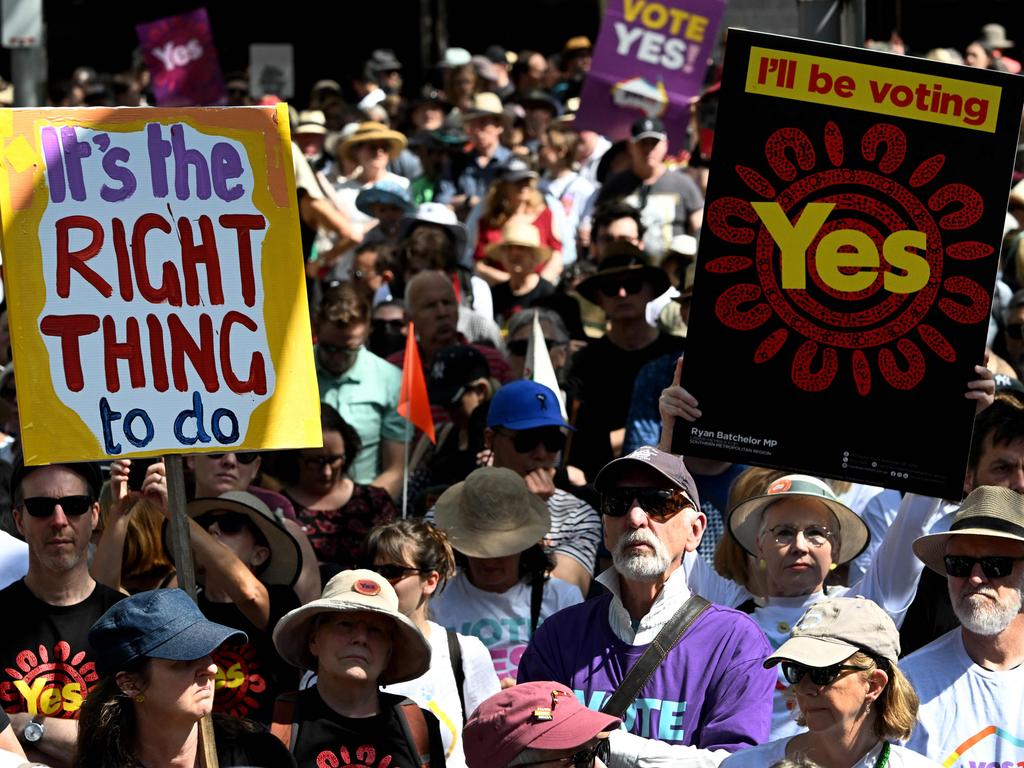
Certainly the voice debate is bitter and divisive and Anthony Albanese is still confident the referendum will pass and has “no regrets” in committing to it from a secure leadership position.
Given the currency of these ideas it is an interesting exercise to embark on a scenario for one of those journalistic, quickie pseudo-historical fictional novels based on “what if” there is a more divisive debate and its defeat leads to catastrophic political fallout.
A book produced shortly after October could have all the currency of “real events”, public interest and the excitement of big dramatic ending.
So, let’s lay out the foundation for a political pot boiler that uses a different sliding door in history and portrays a complete repudiation of some of the current, safe and unchallenged assumptions mixed with “true events” as they say in the movies.
For a start, a Labor Prime Minister is absolutely committed to an idea for major change and facing a hostile Senate where he doesn’t have a majority (no need for fiction there), commits to a means to go outside Parliament and calls a national vote, a plebiscite or a referendum.
There is no constitutional convention and the model for change is unilaterally determined to be put to the people.
The referendum is to be held in October with only a couple of months for general debate.
Of course, the machinery of government supports the referendum proposal as do the affluent, big business, corporate elite, some churches and, overwhelmingly the media. The overriding principle is overwhelmingly endorsed by the public.
But, the model/method proposed to achieve the end is not popular with the lower-paid, the less educated, those in the regions, some migrants and some churches.
The debate becomes divisive, bitterly so, splits workplaces and sets workers against bosses. It is far more divisive and socially disruptive than today’s debate on the indigenous voice to parliament.
When the ballot is held in October the No vote is carried by a slim majority ensuring a humiliating loss for the prime minister and Labor Party, as well as, ensuring the bitterness continues and the Prime Minister remains convinced of the rectitude of his case.
Unfortunately for the PM, in this scenario, the Labor Party Parliamentary caucus loses faith in the leader’s judgment, his credibility and authority have been reduced and - again this is a scenario - the Labor MPs move a motion of no confidence in the prime minister and he is removed as leader.
But, convinced of his cause the former Labor leader takes MPs who supported him out of the Labor caucus and forms an alliance with opposition MPs of a like mind. Of course, in the factoid world of politics the Greens and teal independent movement could form a new government with the Labor PM who was turfed out.
Thus, the proposal at the heart of the referendum would live on and be pursued by the now reinstated prime minister who commands the numbers on the floor of the House of Representatives with his new party alliance.
The community remains divided, the Labor Party has suffered a huge loss and is crippled and the referendum can be put again but, after so much upheaval and dire consequences from the first vote, the second vote is defeated by an even bigger margin.
So, in this sliding door moment of history there are real consequences both social and political because of a divisive - and failed - referendum proposal.
Now, there is one small problem with this fictional scenario - it’s absolutely true.
Not based on history, it is history.
For those attuned to political history the above scenario would have been enough of a hint to recognise the truly most divisive referendum debate in Australia: Billy Hughes’ campaign for conscription which was put to the people twice during World War I in 1916 and 1917 and was defeated both times.

The first defeat by a majority of just 3.2 per cent in an indicative plebiscite in 1916 was seen as a “grass roots” victory for the lower-paid, unionists and Irish Catholics over the ruling political and financial elite.
Labor caucus, including some who didn’t see conscription as the answer to supporting the war effort after 6000 Australian volunteers had died in the battle of the Somme, was divided over Hughes’ methods and judgment and lost faith in his leadership. Labor was split for the first time.
The defeat of the second referendum, after Hughes became PM again and pressed a second vote, demonstrated the depth of public feeling, including among Australian diggers at the front, and how out of touch Hughes was with voters.
No-one is suggesting Albanese will face the same fate as Hughes did on the defeat of his divisive vote but the damage from a defeat will affect his prime ministerial authority, credibility and judgment. His colleagues are already showing signs of concern about decisions made over Qatar and Qantas flights into Australia, a distraction from cost-of-living issues, the full impact of carbon emissions reduction measures and the bizarre exclusion of the States from the Covid 19 inquiry.
Albanese was able to brag that his Aston by-election victory was the first in 120 years for a sitting government against an opposition but he should remember the Kalgoorlie by-election was an echo from those failed referendums when Hughes stitched up Australia’s only MP expulsion from the House of Representatives because the Labor MP, an Irishman, Hugh Mahon, had opposed the conscription referendum.
History, no matter from how long ago, is never far away.








There are two assumptions being made about the current political debate over the indigenous voice to Parliament: the first is that it is the most divisive referendum debate in Australia’s history and; there will be no political major consequences if it fails.